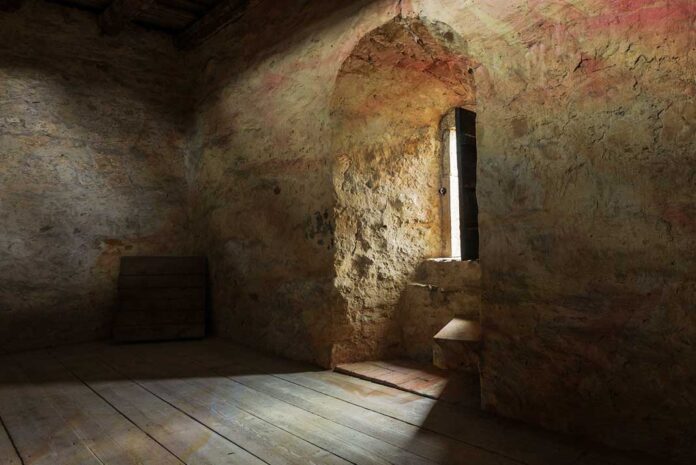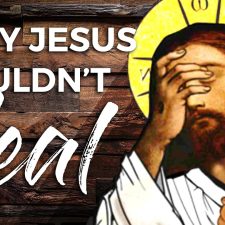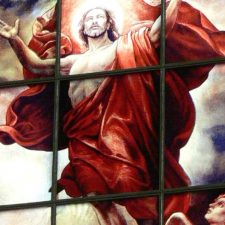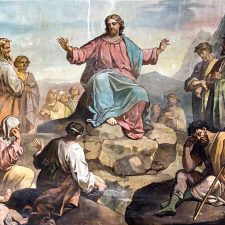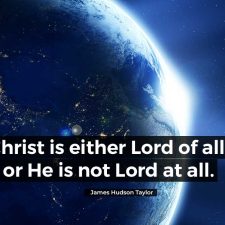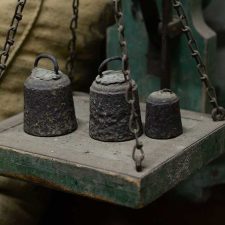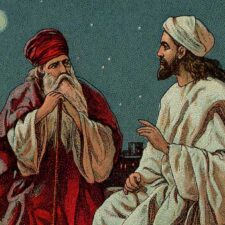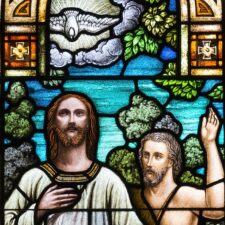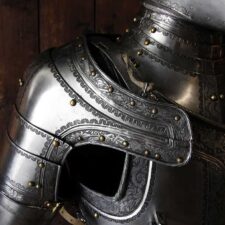Two important New Testament events occurred in an upper room. Most Christians are aware of the first one: the Last Supper. The second one took place after Jesus’s ascension in Acts 1: the 10-day period waiting for the coming of the Holy Spirit. A look at these two events may give us special insight into the introduction of the New Covenant as manifested at Pentecost in Acts 2. The upper rooms where they happened were in many homes a room in the upper part of the house, used to receive company, hold feasts, and retire for meditation and prayer.
In Luke 22:11-12, Jesus instructs His disciples where they would celebrate the Passover meal. He told them that the owner of the house would “show you a large, furnished upper room; prepare it there.” It was in this place that Jesus celebrated His last Passover until His Second Coming, alluding to the New Covenant promised to Israel and the house of Judah in Jeremiah 31:31-34. The account then tells us that Jesus broke the matzah bread and proclaimed that it was His body “given for you, do this in remembrance of Me.” In a few hours, that body would be offered as the Passover lamb.
The New Covenant in My Blood
After eating the Passover meal, He took the cup of wine and said, “This cup which is poured out for you is the new covenant in My blood”. This wine signified His precious blood, which would be shed for the remission of sins in establishing the New Covenant. There is only one reference directly to the New Covenant in the Old Testament and it is found in Jeremiah 31. It appears that the disciples thought that this covenant as promised to the house of Israel and house of Judah would be happening soon. No one understood that this New Covenant would also establish a new relationship with God through the recognition of Jesus as Messiah, Christianity and the church age. That revelation would begin to take place in the next upper room.
In Acts 1:9-11, the disciples watched the ascension of Jesus. It was an incredibly powerful moment for each of them, but left them all with many questions. What now? What do we do until He comes back?
Acts 1:12-16
12 Then they returned to Jerusalem from the mount called Olivet, which is near Jerusalem, a Sabbath day’s journey away. 13 When they had entered the city, they went up to the upper room where they were staying; that is, Peter and John and James and Andrew, Philip and Thomas, Bartholomew and Matthew, James the son of Alphaeus, and Simon the Zealot, and Judas the son of James. 14 These all with one mind were continually devoting themselves to prayer, along with the women, and Mary the mother of Jesus, and with His brothers.
15 At this time Peter stood up in the midst of the brethren (a gathering of about one hundred and twenty persons was there together), and said, 16 “Brethren, the Scripture had to be fulfilled [Psalm 41:9], which the Holy Spirit foretold by the mouth of David concerning Judas, who became a guide to those who arrested Jesus.
So there were about 120 disciples in that upper room and they were “with one mind” and “devoting themselves to prayer”. Peter takes the lead by showing the others that Judas Iscariot’s betrayal was not by accident, but in fulfillment of the Scriptures. He references that the Holy Spirit foretold it by David’s Psalm 41. Since they had already received the Holy Spirit from the Risen Lord in John 20:22, they were now beginning to learn how to operate under His guidance and leading and experience His awe. The full empowerment of the Spirit would take place at Pentecost. This was very similar to the response of the disciples to Pentecost in Acts 2:42-43: “They were continually devoting themselves to the apostles’ teaching and to fellowship, to the breaking of bread and to prayer. Everyone kept feeling a sense of awe; and many wonders and signs were taking place through the apostles.” In verses 46-47: “Day by day continuing with one mind in the temple, and breaking bread from house to house, they were taking their meals together with gladness and sincerity of heart, praising God and having favor with all the people.”
The Spirit and the Upper Room
The significance of the upper room cannot be understated. This room was reserved for special occasions, including meditation and prayer. In the New Covenant, the believers’ connection to the Holy Spirit is in the upper room. Spiritually speaking, there is a war going on. In Galatians 5:16-17, “But I say, walk by the Spirit, and you will not carry out the desire of the flesh. For the flesh sets its desire against the Spirit, and the Spirit against the flesh; for these are in opposition to one another, so that you may not do the things that you please.”
We learn how to walk by the Holy Spirit in the upper room, where the Spirit of the Lord is, where there is liberty (2 Corinthians 3:17). In the upper room, the flesh has no power.
The Bible teaches that man is trichotomous, meaning he is made up of three elements: body, soul, and spirit. Each of these elements speaks to different sources of life. The Greek word for body is bios where we get the word biology. The physical body is the center of bios life. Pseuche is Greek for soul, the immaterial part of man that includes the mind, heart, emotions, and the seat of personality. This Greek word is the source of the English word psychology. For the natural (unregenerate) man, the life of the body and soul are lived on the bottom floor of the house.
Life in the Spirit
The Greek word for spirit is pneuma where we get the English word pneumatic. Pneuma can be translated not only spirit, but also wind or breath. In Proverbs 20:27, the Scripture says, “The spirit of man is the lamp of the Lord, searching all the innermost parts of his being.” The human spirit is the part of man that connects with the Holy Spirit. In Romans 8:16, “The Spirit Himself testifies with our spirit that we are children of God”. The Holy Spirit resides in the upper room and it is there the believer experiences His presence, just like the disciples. Access to the upper room is available to all who believe that Jesus is God and that He has paid the price for man’s salvation. In John 3:8, “The wind blows where it wishes and you hear the sound of it, but do not know where it comes from and where it is going; so is everyone who is born of the Spirit.” Guidance by the Holy Spirit is always by faith.
The New Covenant can only be accomplished in the upper room. Fulfilling the New Covenant utilizing Old Covenant dynamics doesn’t work. In Matthew 9:17, Jesus taught, “Nor do people put new wine into old wineskins; otherwise the wineskins burst, and the wine pours out and the wineskins are ruined; but they put new wine into fresh wineskins, and both are preserved.” The wine, symbolic of the New Covenant requires a new wineskin as presented in Hebrews 8:10-12. A New Testament believer living under the Old Covenant standards and its consequences will not be successful.
Life in the upper room can best be described by Jesus in John 6:63-65, “It is the Spirit who gives life; the flesh profits nothing; the words that I have spoken to you are spirit and are life. But there are some of you who do not believe.” For Jesus knew from the beginning who they were who did not believe, and who it was that would betray Him. And He was saying, “For this reason I have said to you, that no one can come to Me unless it has been granted him from the Father.” When the believer decides that he is willing to set aside the bios life and the pseuche life for the life of the pneuma, he moves to the upper room where the presence of God resides and it is there he experiences “fullness of joy” (Psalm 16:11).
Amos 9:5-6
“5 The Lord God of hosts, the One who touches the land so that it melts, and all those who dwell in it mourn, and all of it rises up like the Nile and subsides like the Nile of Egypt; 6 The One who builds His upper chambers in the heavens and has founded His vaulted dome over the earth, He who calls for the waters of the sea and pours them out on the face of the earth, the Lord is His name.”



